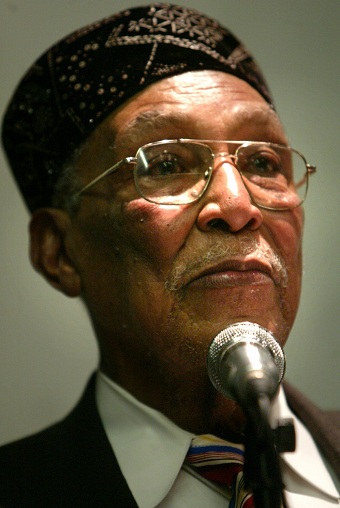
Ernest Withers, a revered civil rights photographer who captured iconic images of Martin Luther King Jr. on the night King was shot in Memphis, actually played a different role the day before: FBI informant.
The Commercial Appeal, a newspaper in Memphis, just completed a two-year investigation that reveals how Withers provided the FBI with details about where King was staying and information on his meeting with black militants on April 3, 1968 — the day before the assassination.
Withers' spying, however, extends far beyond the slain civil rights leader.
The Commercial Appeal found FBI reports indicating that Withers collaborated for years with FBI agents monitoring the civil rights movement. Those FBI reports, the paper's Marc Perrusquia writes, "reveal a covert, previously unknown side of the beloved photographer."
Withers is certainly beloved in Memphis, where a namesake museum is scheduled to open next month. It remains to be seen how these new revelations may affect Withers' legacy.
The Memphis paper reports how Withers' spying assisted J. Edgar Hoover, the controversial FBI director who long covertly monitored King and others considered radicals. Withers, the paper notes, gave the bureau a "front-row seat to the civil rights and anti-war movements in Memphis." In the 1960s, he provided information on everyone from the Invaders — a militant black power group — to church leaders, politicians and business owners. Experts believe the FBI paid Withers for spying.
D'Army Bailey, a retired Memphis judge and former activist once watched by the FBI, told the paper that such covert tactics are "something you would expect in the most ruthless, totalitarian regimes."
Digging into the late Withers' past wasn't easy. The Commercial Appeal's scoop proved to be the result of shoe-leather reporting, determination and a bit of luck.
The newspaper tried unsuccessfully to obtain Withers' informant file, with the Justice Department rejecting Freedom of Information Act requests and refusing to acknowledge that such a file even exists. However, as Perrusquia writes, the government did release "369 pages related to a 1970s public corruption probe that targeted Withers -- by then a state employee who was taking payoffs -- carefully redacting references to informants -- with one notable exception."
And in those documents, the Commercial Appeal notes, the government inadvertently left a single reference to Withers' informant number, which "unlocked the secret of the photographer's 1960s political spying when the newspaper located repeated references to the number in other FBI reports released under FOIA 30 years ago."






 Another 1 added to the neverending list
Another 1 added to the neverending list
